‘To the very end’: the siege of South Korea’s accused leader Yoon Suk Yeol
Believed inside a hillside stronghold protected by scores of guards, Yoon Suk Yeol awaits prosecutors’ next move in the attempt to bring him in for questioning over his martial law scheme.
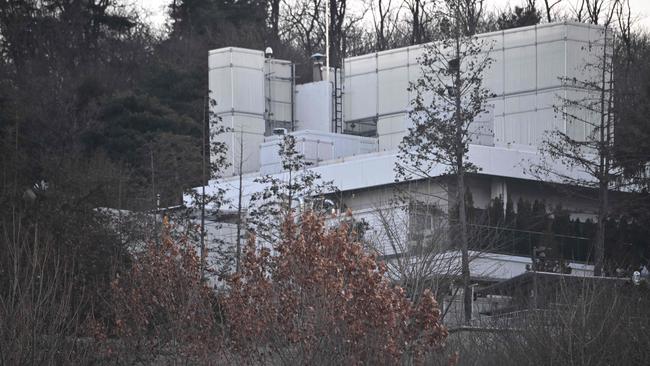
South Korea’s political leadership is in uncharted territory after the sitting president resisted arrest over a failed martial law decree days before the warrant expires.
In scenes of high drama on Friday, Yoon Suk Yeol’s presidential guards and military troops shielded the former star prosecutor from investigators, who called off their arrest attempt citing safety concerns.
The South Korean President was impeached and suspended last month after the bungled martial law declaration – a political move swiftly overturned by parliament – with a separate warrant later issued for his arrest.
“There was a standoff. While we estimated the personnel blocking us to be around 200, there could have been more,” an official from the investigation team said on Friday on condition of anonymity.
“It was a dangerous situation.”
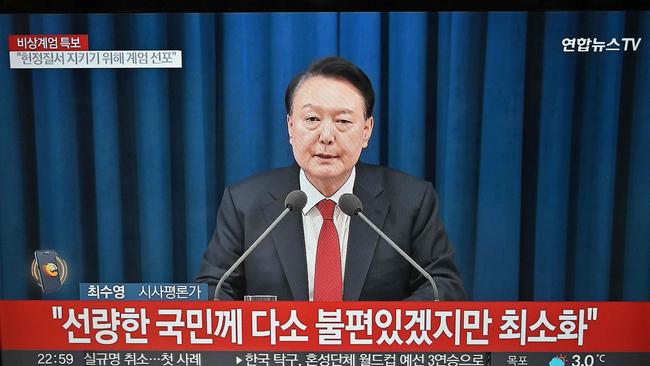
Mr Yoon faces criminal charges of insurrection, one of a few crimes not subject to presidential immunity, meaning he could be sentenced to prison or, at worst, the death penalty.
If the warrant is carried out, Mr Yoon would become the first sitting South Korean president to be arrested.
Since his impeachment, Mr Yoon is believed to have been holed up in his presidential residence in the capital Seoul, where he has refused to emerge for questioning three times.
The unprecedented showdown – which reportedly included clashes but no shots fired – left the arrest attempt by investigators in limbo with the court-ordered warrant set to expire on Monday.
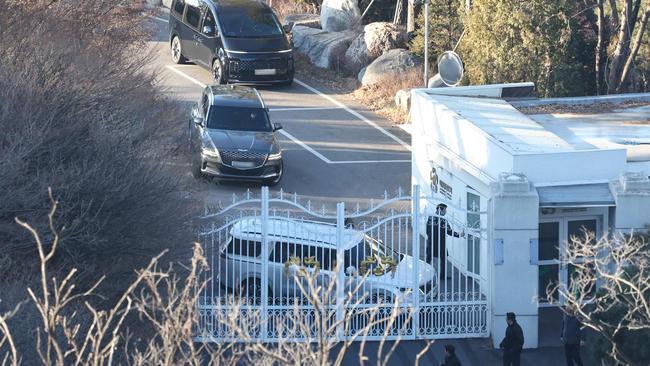
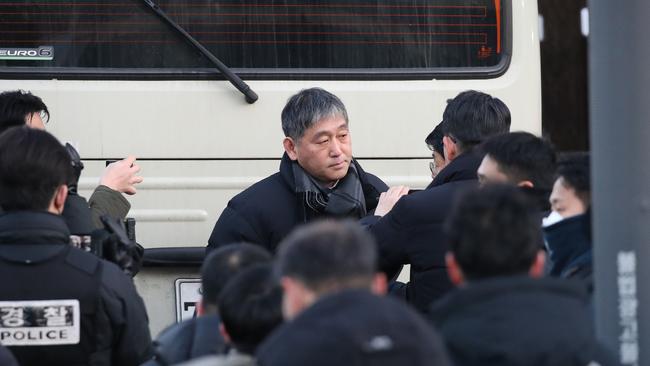
Officials from the Corruption Investigation Office (CIO), probing Mr Yoon over his martial law decree, could make another bid to arrest him before then.
But if the warrant lapses, they may apply for another.
The Constitutional Court slated January 14 for the start of Mr Yoon’s impeachment trial, which if he does not attend would continue in his absence.
Former presidents Roh Moo-hyun and Park Geun-hye never appeared for their impeachment trials.
Mr Yoon’s lawyers decried Friday’s arrest attempt as “unlawful and invalid”, and vowed to take legal action.
Two top officials from Mr Yoon’s presidential security service also refused a police request to appear for questioning on Saturday, citing the “serious nature” of protecting him, the service said in a statement sent to AFP.
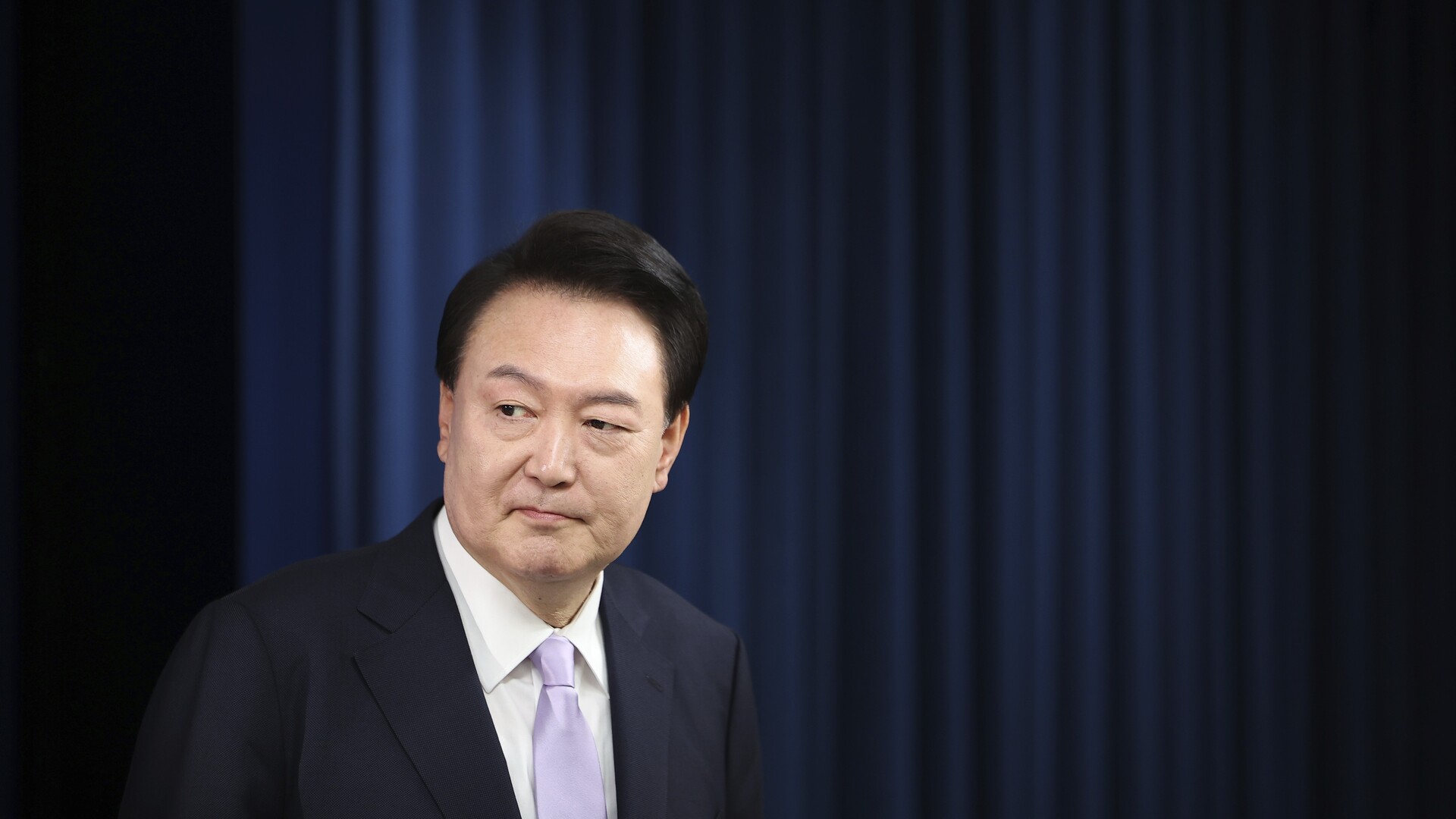
Experts said investigators could wait for greater legal justification before attempting to arrest the suspended president again.
“It may be challenging to carry out the arrest until the Constitutional Court rules on the impeachment motion and strips him of the presidential title,” Chae Jin-won of Humanitas College at Kyung Hee University told AFP.
South Korean media reported that CIO officials had wanted to arrest Mr Yoon and take him to their office in Gwacheon near Seoul for questioning.
After that, he could have been held for up to 48 hours on the existing warrant. Investigators would have needed to apply for another arrest warrant to keep him in custody.
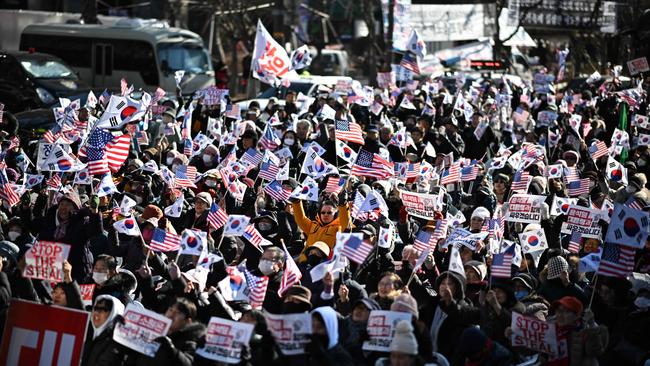
Mr Yoon has remained defiant and told his right-wing supporters during the week he would fight “to the very end” for his political survival.
By the time investigators arrived to arrest Mr Yoon, he had layered his presidential compound with hundreds of security forces to prevent it.
Around 20 investigators and 80 police officers were heavily outnumbered by around 200 soldiers and security personnel linking arms to block their way.
A tense six-hour standoff ensued until Friday afternoon when the investigators were forced to U-turn.
Thousands of protesters, both for and against Mr Yoon, gathered in front of the residence and along major roads in Seoul on Saturday – either demanding his arrest or calling for his impeachment to be declared invalid.
Supporter Kim Chul-hong, 60, said Yoon’s arrest could undermine South Korea’s security alliance with the US and Japan.
“Protecting President Yoon means safeguarding our country’s security against threats from North Korea,” he told AFP.
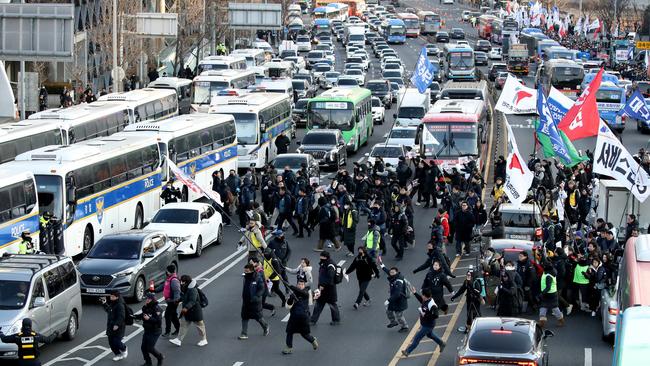
Members of the Korean Confederation of Trade Unions, South Korea’s largest umbrella union, attempted to march to Mr Yoon’s residence to protest against him, but were blocked by police.
It said two of its members were arrested, and several others were injured in clashes.
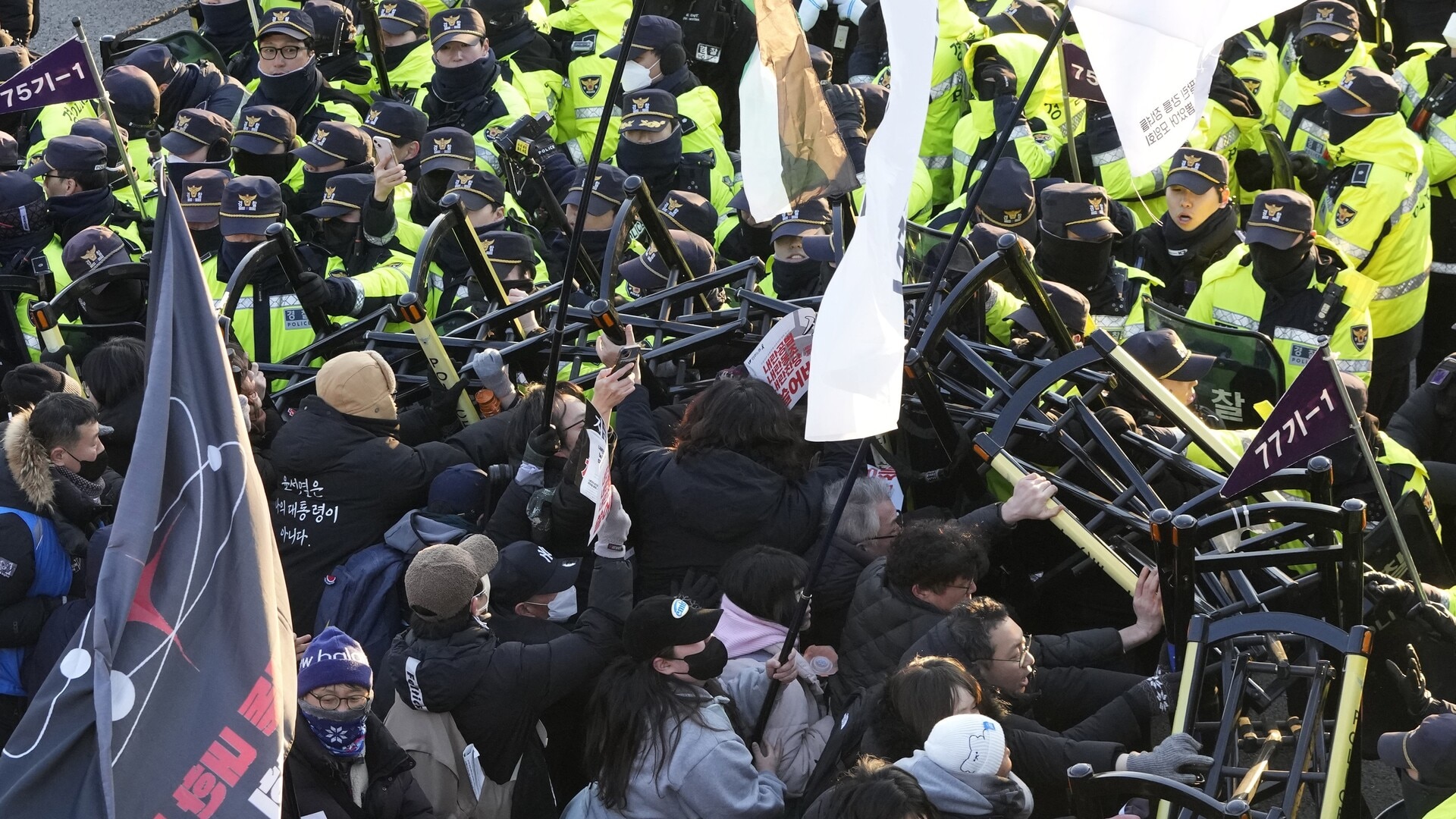
The investigators said in a statement on Friday they would ask Finance Minister Choi Sang-mok, who was installed as acting president a week ago, to back the warrant.
The weeks of political turmoil have threatened the country’s stability. South Korea’s key security ally, the United States, called for the political elite to work towards a “stable path” forward.
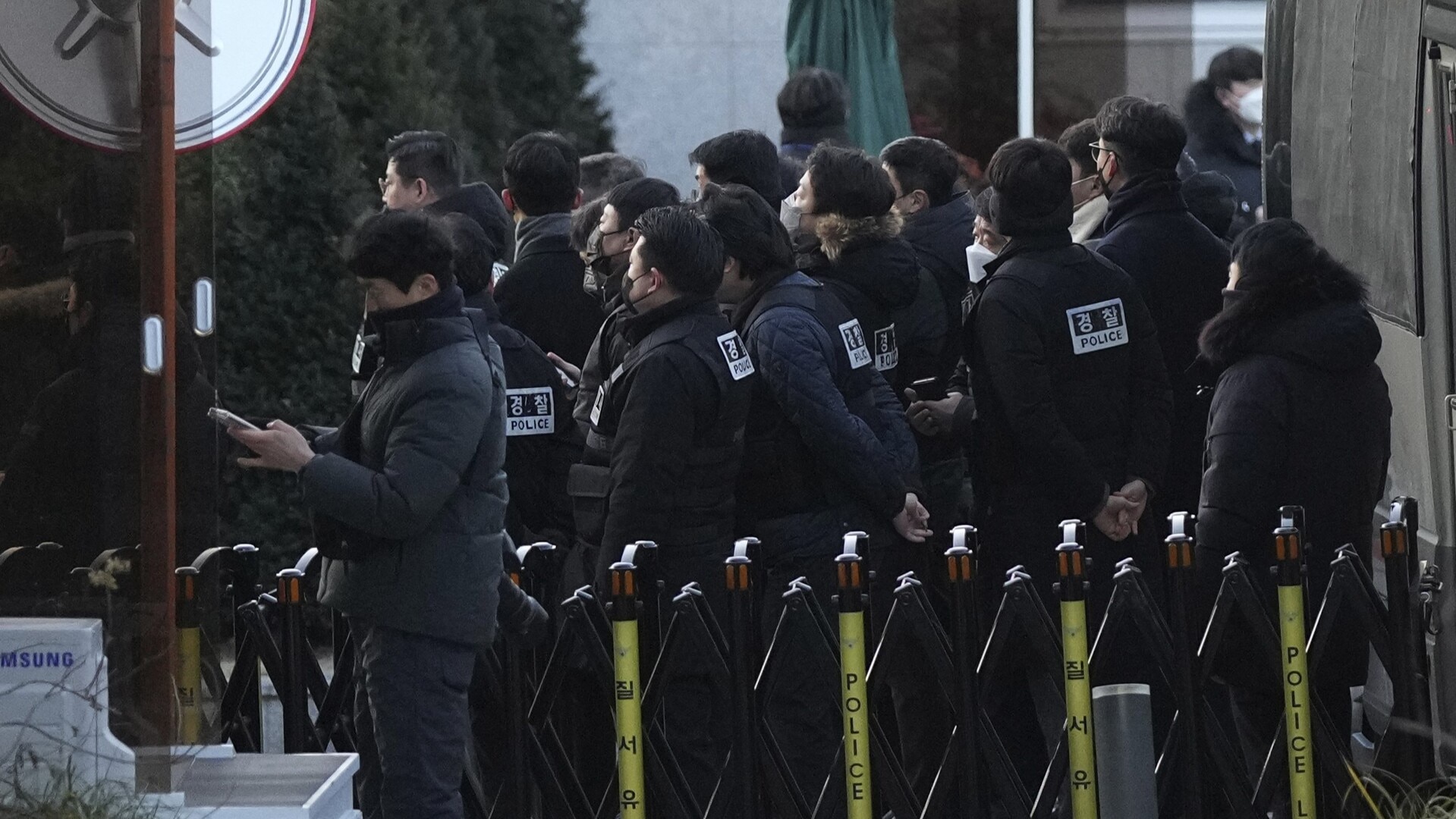
National Security Council spokesman John Kirby on Friday reaffirmed Washington’s commitment to maintaining bilateral ties.
Outgoing US Secretary of State Antony Blinken is scheduled to hold talks in Seoul on Monday, with one eye on US-South Korea relations and another on nuclear-armed North Korea.
Fatal crash cockpit transcript nearly complete
South Korean investigators said on Saturday they were close to finalising the transcript of the cockpit voice recorder from a fatal plane crash that left 179 people dead.
The recording may hold clues to the final moments of Jeju Air flight 2216, which was carrying 181 passengers and crew from Thailand to South Korea on Sunday when it belly-landed before slamming into a concrete barrier at the end of an airport runway.
South Korean and US investigators, including from the aircraft’s manufacturer Boeing, have been combing the crash site in southwestern Muan since the disaster to establish a cause.
“The transcript of the cockpit voice recorder (CVR) is expected to be completed today, and the flight data recorder (FDR) is in the process of being prepared for transport to the United States” for analysis, South Korea’s land ministry said in a statement.
Investigators also recovered the aircraft engine from the crash site this week, the ministry added.
The exact cause of the Boeing 737-800 crash is still unknown, but investigators have pointed to a bird strike, faulty landing gear and the runway barrier as possible issues.
Authorities this week carried out search and seizure operations at Muan airport where the flight crashed, a regional aviation office in the southwestern city, and Jeju Air’s office in the capital Seoul, police said.
Jeju Air’s chief executive Kim E-bae has been banned from leaving the country as the investigation continues, police also said.
The pilot warned of a bird strike before pulling out of a first landing, and then crashing on a second attempt when the landing gear did not emerge.
Dramatic video showed the plane colliding with the concrete barrier at the end of the runway before bursting into flames.
AFP

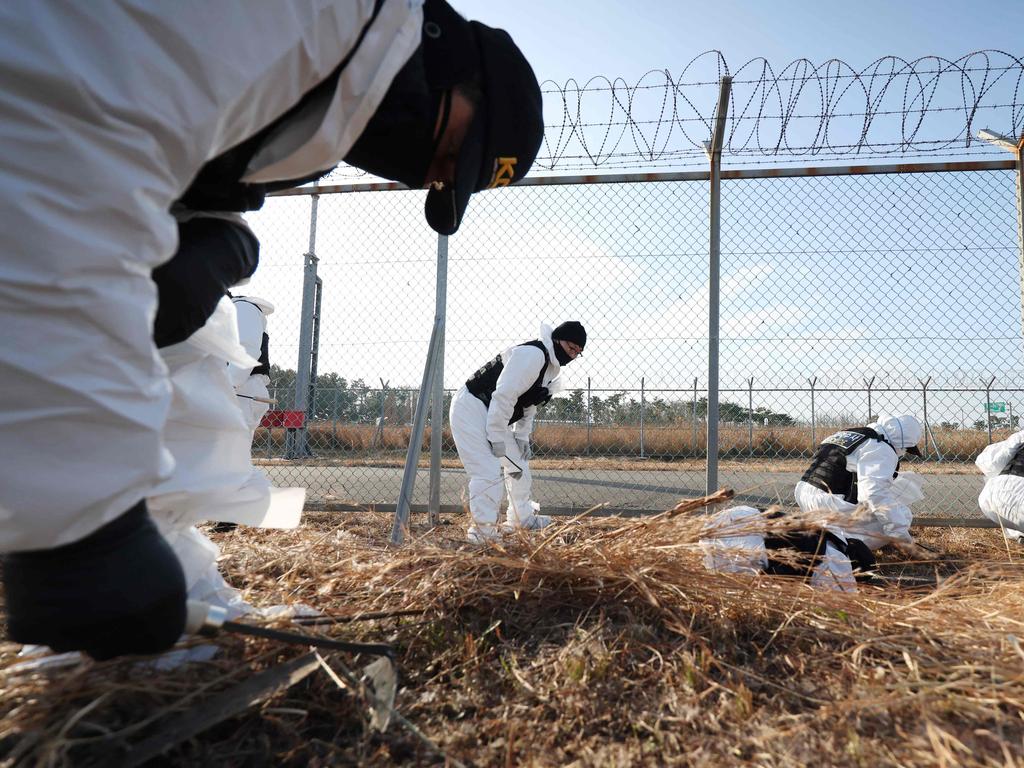
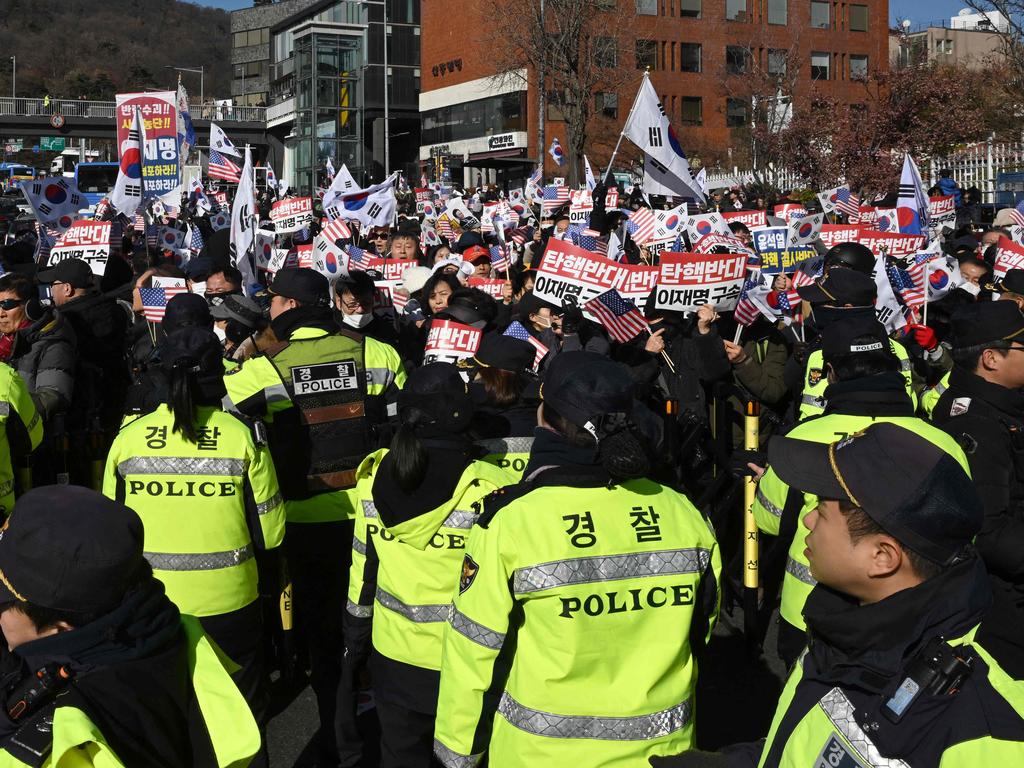
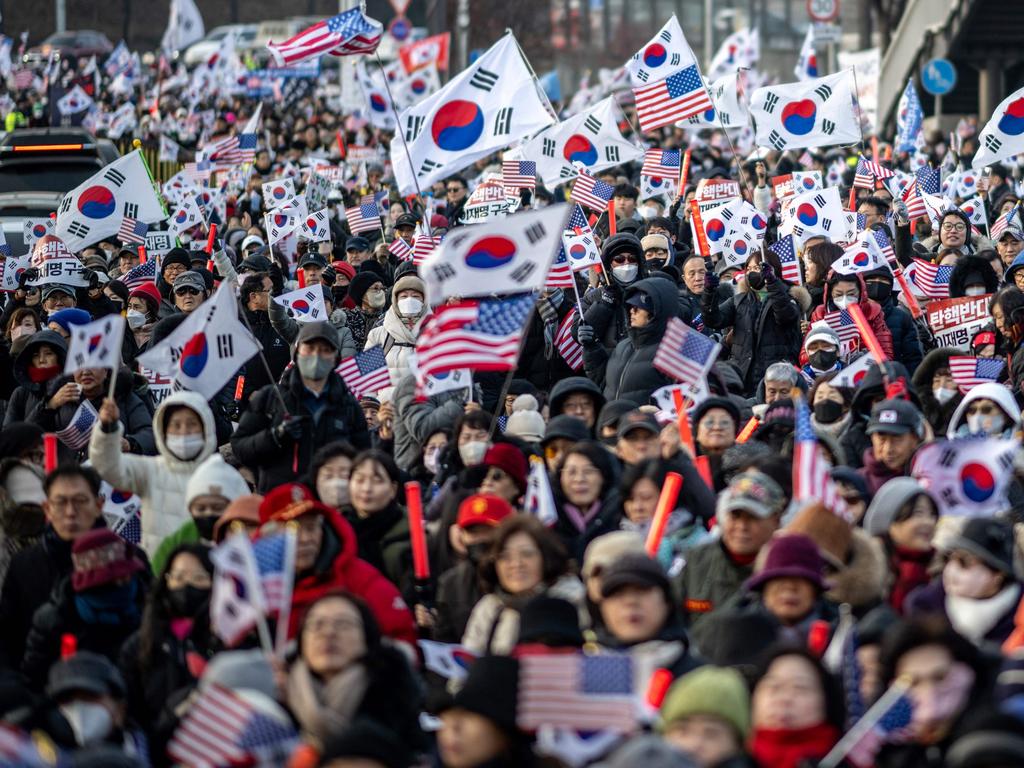
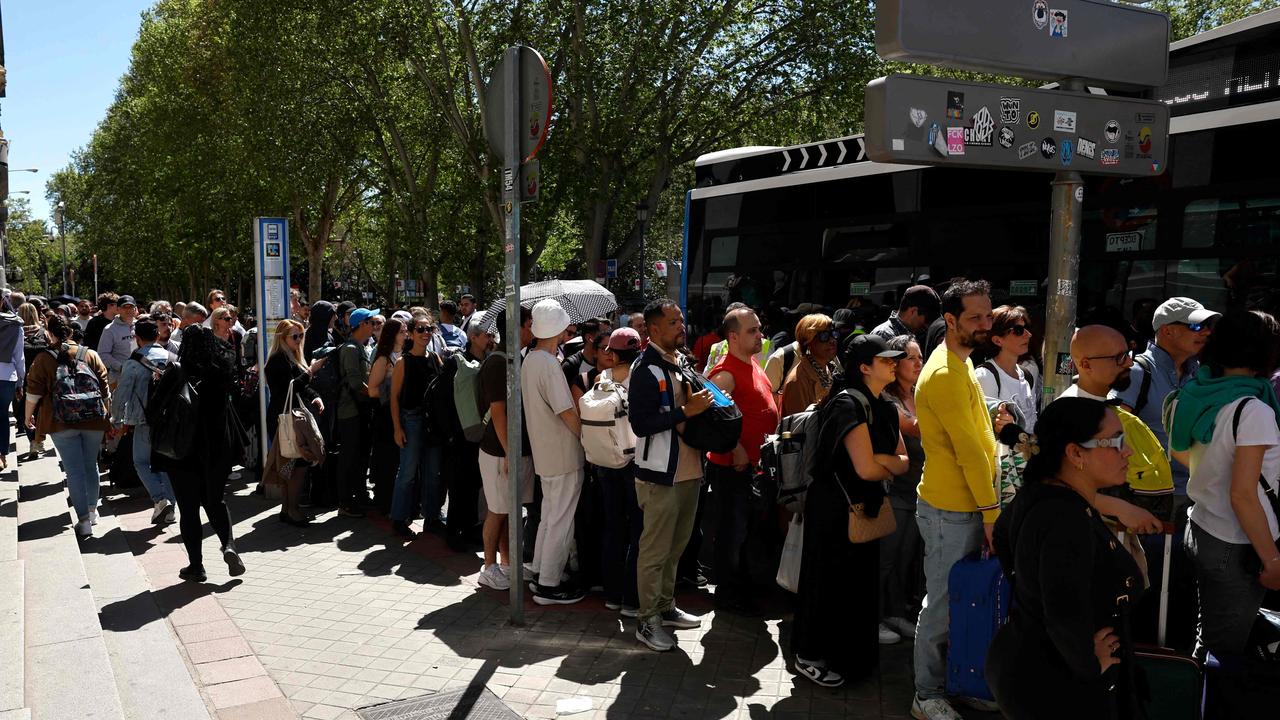
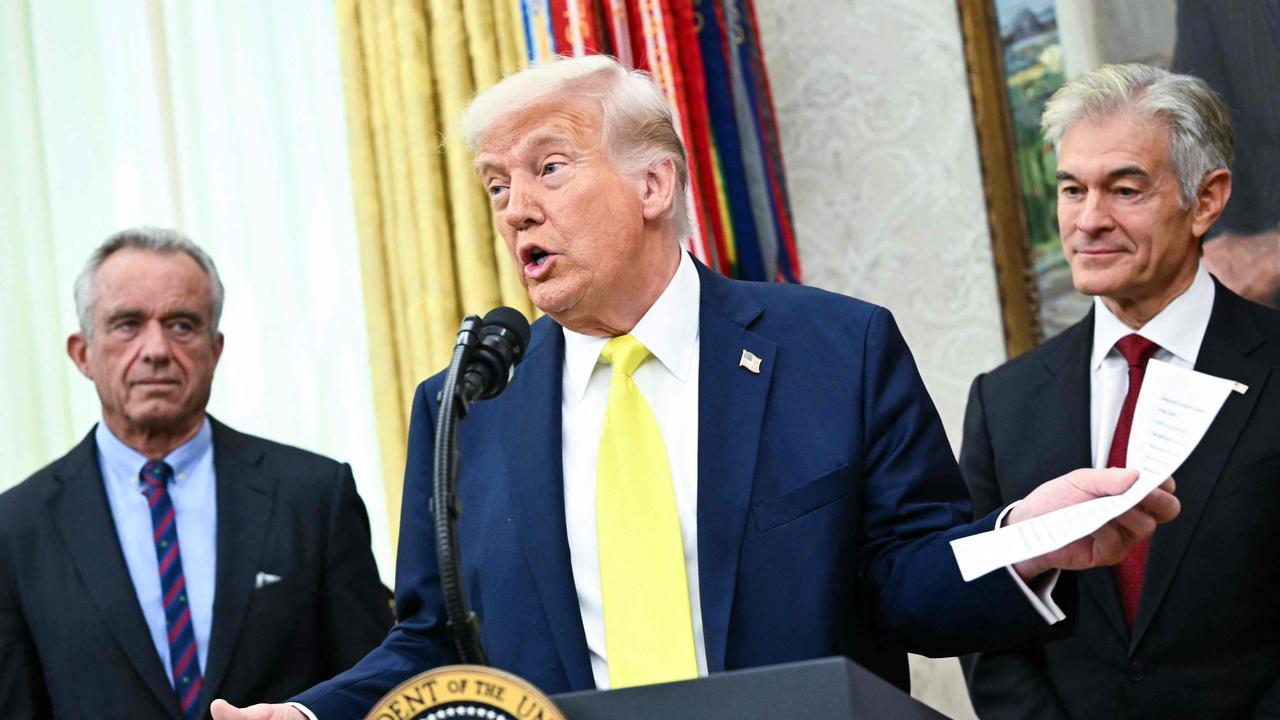
To join the conversation, please log in. Don't have an account? Register
Join the conversation, you are commenting as Logout